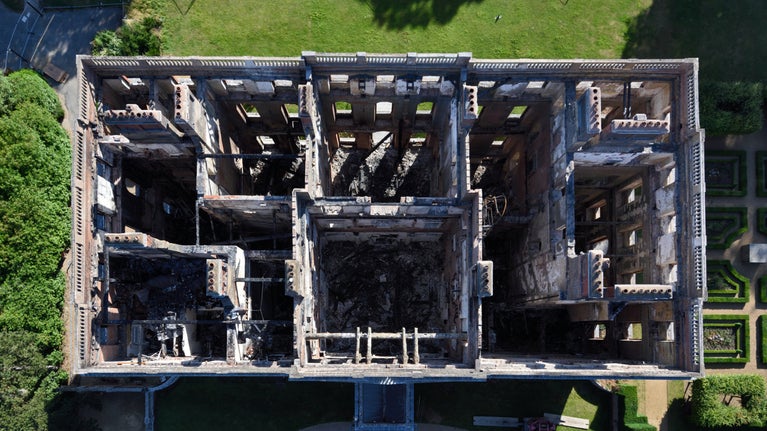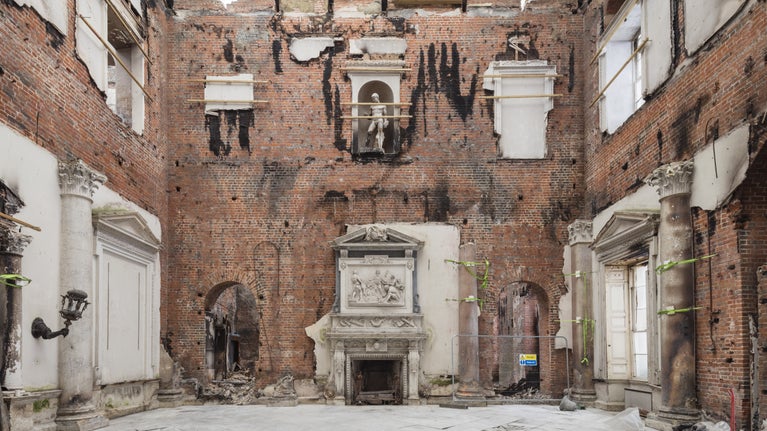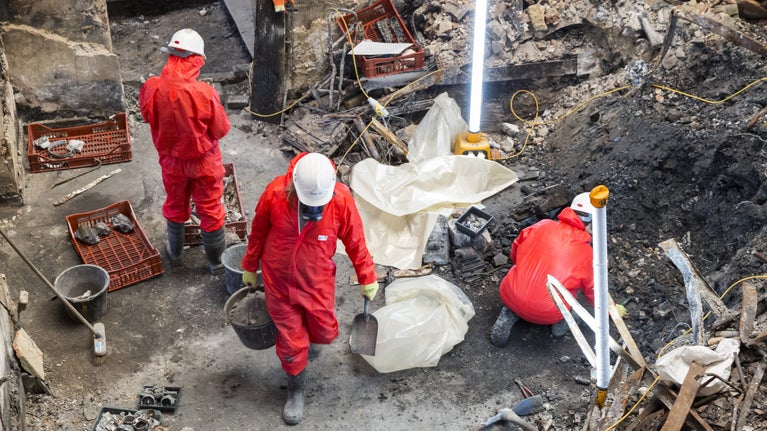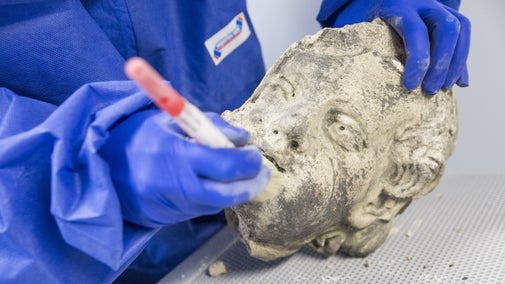
Discover more at Clandon Park
Find out when Clandon Park is open, how to get here, the things to see and do and more.

During the afternoon of Wednesday 29 April 2015, a devastating fire broke out at Clandon Park. Everyone was safely evacuated but the fire raged through the house, damaging all but one room. Curator Sophie Chessum was there in the hours that followed and this is her story.
Like so many, I arrived to help on the night of the fire and became part of the huge emergency salvage operation.
It was a grim experience for so many of us to have to stand by and watch the destruction of Clandon Park. A place that was at once a home, an architectural masterpiece, a museum full of remarkable artefacts and an extraordinary workplace.
The ability of the fire to consume – so quickly and completely – the artistry and craft skills of centuries was terrifying.
My memories from that night are of contrasting noises; not just of fire, breaking glass and falling debris, but the din of engines, hoses, generators, voices and inevitably mobile phones.
With no electricity, by nightfall the entire site was plunged into darkness apart from the flames glowing from inside the house. On the west side the air was cold and dewy; on the east filled with smoke and ash that became ingrained in our hair, our clothes and covered our cars.

Having raged for much of the night, the fire was mostly out by noon the following day. A close inspection of the house revealed remarkable discoveries. I walked through the front door towards a smoking mass of charred timbers that was once the Marble Hall, where I saw the two superb carved marble overmantel by sculptor John Michael Rysbrack, dating to the late 1720s, untouched.
Both of these outstanding sculptures clearly had a lucky escape during the fire, but none more so than that northern relief. The fragile carved detail was spared, despite two enormous roof timbers coming to rest either side of the carvings. Ten centimetres either way, and part of it would have been smashed to pieces.
That no one was hurt and that so many items were rescued are thanks to the dedication of Surrey Fire and Rescue Service, supported by a comprehensive salvage plan and our staff and volunteers.

A period of intense activity followed the fire, with a salvaged collection of over 400 items transferred to a secure store where they were assessed and given initial treatment.
Within weeks, two huge cranes began to remove dangerous timbers, bricks, windows, collapsed steels and the horrible layer of tangled metal to allow ground-level access to the house.
A specialist self-supporting scaffold was designed to wrap and roof this huge four-storey house and archaeologists carefully began to remove the debris and search for any surviving treasures.
Little did I know how complex and numerous the challenges would be. From the day of the fire to welcoming visitors took 18 months due to the complexity of the job. Designing and installing the scaffold alone took six months due to the precision and detail required.
Since 2015, this long-term project to bring the house back to life has been through many significant stages.

Find out when Clandon Park is open, how to get here, the things to see and do and more.

From small ceramics to historic wallpaper, some of Clandon’s treasures live on after the fire to tell their stories of that fateful event.

Clandon Park's history spans more than three centuries, from its origins as a grand Georgian home to its time as a First World War military hospital and subsequent restoration in the 1960s.